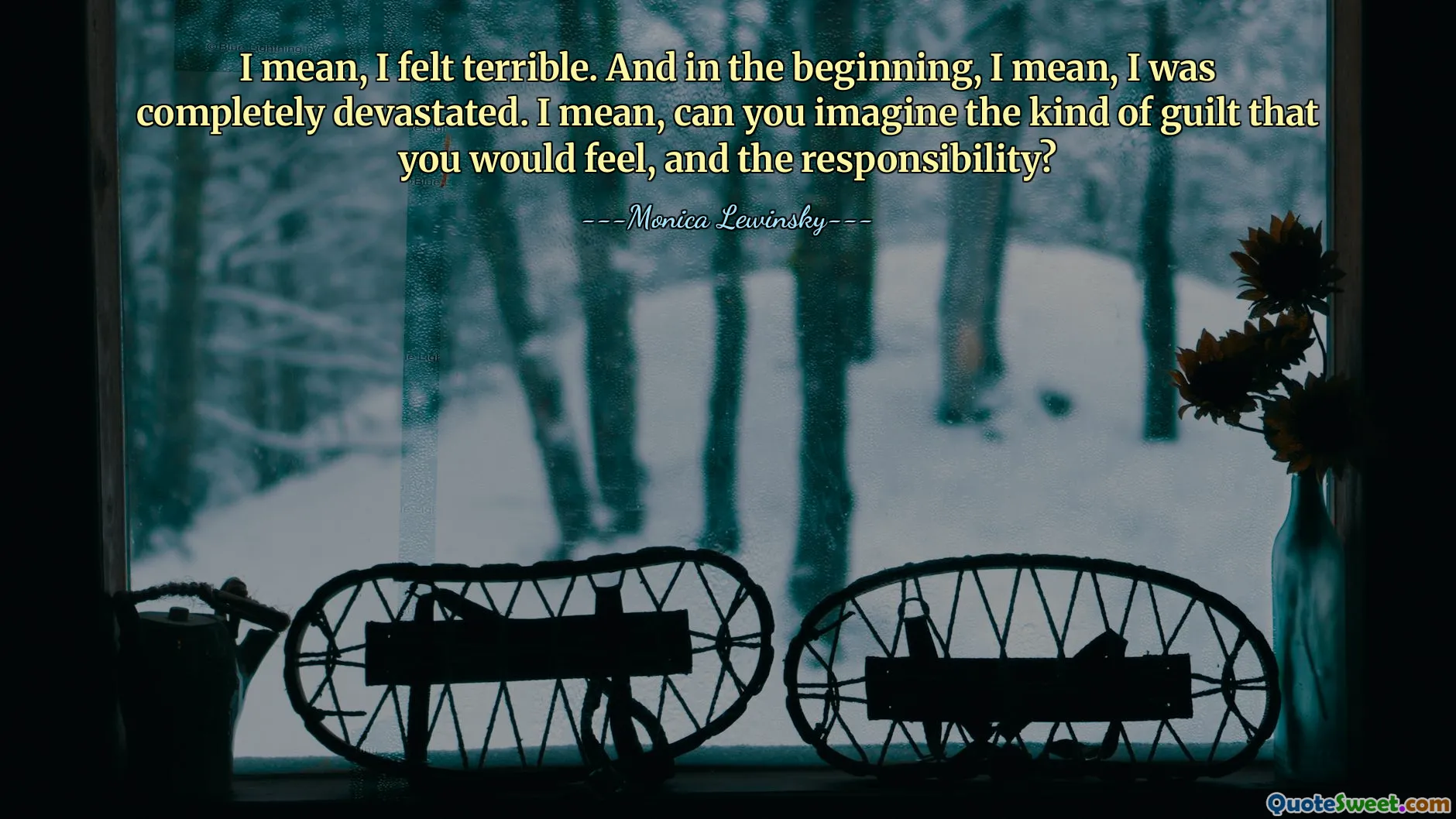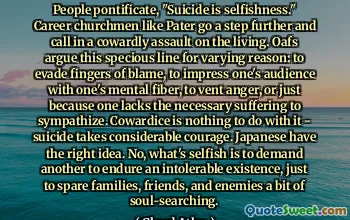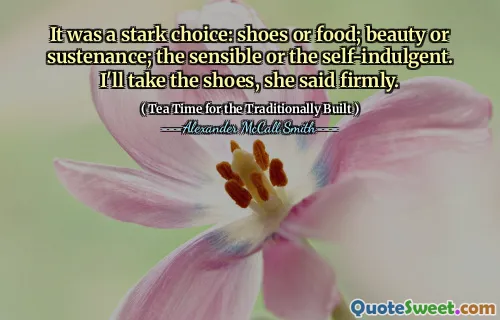
I mean, I felt terrible. And in the beginning, I mean, I was completely devastated. I mean, can you imagine the kind of guilt that you would feel, and the responsibility?
This quote captures an intense emotional state of remorse and accountability. When individuals are faced with the fallout of their actions, especially those that have significant consequences for others, a sense of guilt can become overwhelming. The speaker emphasizes their initial feelings of devastation, highlighting the depth of their emotional pain. Guilt, often paired with responsibility, can serve as a catalyst for self-reflection and eventual growth. The raw honesty in acknowledging such feelings invites us to consider the universal human experience of regret and the process of coming to terms with one's mistakes. This vulnerability reveals that admitting guilt is not easy; it involves confronting uncomfortable truths and accepting the ramifications of our actions. It also reminds us that personal accountability is a vital step towards healing, both for oneself and for those affected. Recognizing our faults allows us to learn and evolve, setting the stage for eventual reconciliation or redemption. In a broader sense, this quote encourages empathy, urging us to understand the emotional struggles behind mistakes rather than pass immediate judgment. It emphasizes that guilt and responsibility are integral to the human condition, and facing these feelings can be the beginning of genuine remorse and positive change.
Understanding and acknowledging such emotions helps foster compassion and underscores the importance of humility in our personal journeys. The quote also subtly points out how internal conflict—feeling terrible and devastated—serves as a mirror reflecting our moral compass, guiding us back towards integrity. Ultimately, this insight into human vulnerability reminds us that no one is immune to errors, but it’s our response to those errors that defines us.









